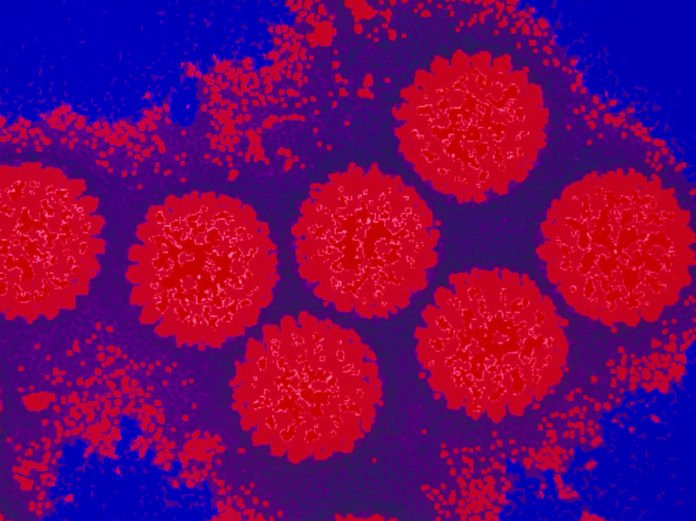Individuals often put sickness and pain in the abdomen is often passed off as the stomach virus, also known as viral gastroenteritis. In stomach virus, a viral infection attacks the digestive system.
In a new study, scientists have identified why some stomach bugs hit us so hard — and spread so fast. They discovered that stomach contaminations, as norovirus and rotavirus, are more infectious and more intense when the infection particles group together.
Originally, the study was started in 2015. Scientists were particularly focused on vesicles — groups of viruses that clump together under protective membranes — compared with free-ranging viruses. Was there any difference, they wondered, in how the clustered and stand-alone viruses attacked our bodies?
Scientists found that the infection particles glom together and turn into their own kind of organism, and after that, they barrage our tissues with a staggering measurement of the sickness. It means the viral clusters were much more effective at attacking human cells.
The protective membrane around these viral clusters may help them pass unnoticed by the immune systems — making them even more difficult to fight off.
Dr. Nihal Altan-Bonnet, research led said, “By being together, they infect an intestinal cell with a very high number simultaneously. Multiple viruses go inside that same cell.”
“This virus is like a Trojan Horse, they enter the cell as one unit, and then once inside the cell, they can attack very effectively. They cooperate and compensate for each other’s insufficiencies.”
During their experiments on mice, scientists found that the mics tend to stay sick for a long duration.
Scientists also focused on existing vaccines for rotavirus. But, the scientists found that the medication is effective only if administered before 15 weeks of age — making it difficult to give in many parts of the world. Norovirus, on the other hand, has neither a vaccine nor a specific drug to treat it.
Robert Legare Atmar, a doctor and professor of infectious disease at Baylor College of Medicine, said, “The study helps us understand mechanisms of norovirus and rotavirus transmission better. Such understanding may help us design strategies and interventions to interrupt transmission.”
“Further research will very likely dive deeper into how these clusters are transmitted and how they operate within the body. Can antivirals be developed that prevent the formation of these ‘packets’?”
The study is expected to help other people create medications to focus on these groups, instead of the individual particles, which could furnish a leap forward in managing the famously troublesome sicknesses.
Altan-Bonnet said, “This research is going to lead to the development of different types of antiviral drugs — ones that target clusters differently. One way to do it is by targeting the membranes.”
“Medications that penetrate the protective shell around the virus clusters could help our bodies fight them off more quickly and easily.”
“And there are other, more surprising ways others might use this research. For instance viruses such as polio are being used to target brain tumors. The research is in the early stages, but testing on humans has begun. The idea is that the researchers might be able to use polio clusters, rather than individual viruses, to attack the tumors more effectively.”
The research is published Wednesday in Cell Host & Microbe.
